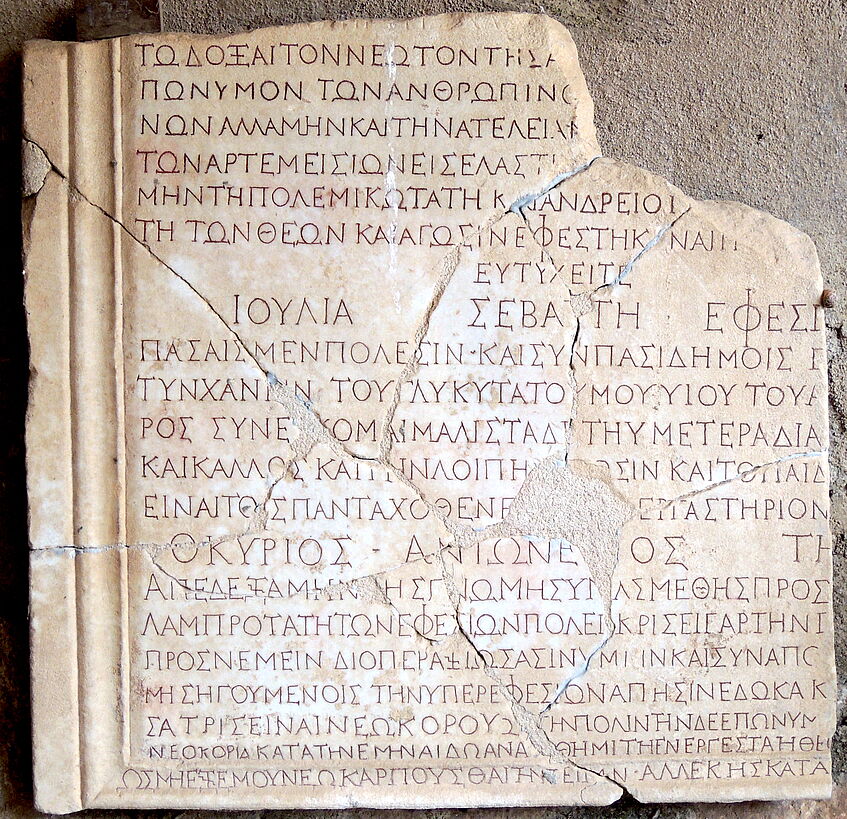Communication between Ruler and Subject

Letters of Caracalla and Iulia Domna addressed to the Ephesians (I.Ephesos 212; © OeAI-OeAW, V. Hofmann)
Communication between Ruler and Subject
Principal Investigator: Thomas CORSTEN
Individual Projects International (WEAVE, Project Number: I 6918)
Duration: 1 October 2024–30 September 2027
Postdoc: Vera HOFMANN
Collaboration Partners:
Rudolf HAENSCH (University of Bamberg)
Katharina-Luise FÖRG (University of Bamberg)
Jakub URBANIK (University of Warsaw)
Thomas KRUSE (Austrian Archaeological Institute of the Austrian Academy of Sciences)
Andreas PÜLZ (Austrian Archaeological Institute of the Austrian Academy of Sciences)
In no other genre of sources are we able to gain a more direct insight into the communication between ruler and ruled in the Roman Empire than in the imperial edicts and letters, which have been transmitted on stone, papyrus or bronze. Although the number of new documents has exploded in recent decades, the last comprehensive collection was undertaken almost 50 years ago. The aim of the project ‘Corpus of Documents of Roman Rule’ (jointly funded by the Austrian Science Fund, the DFG and NCN) is therefore to present an up-to-date collection of imperial correspondence. The critical edition, translation, extensive commentary and historical re-evaluation of the 421 letters of the Roman emperors up to Diocletian is being prepared in cooperation with researchers in Bamberg and Warsaw. Based on her dissertation on the correspondence of Hadrian Vera Hofmann will work on the documents transmitted on stone and bronze from the period of 117 until 169 AD for the Viennese sub-project, led by Thomas Corsten.
Since the Research Group Epigraphy (formerly known as the Kleinasiatische Kommision) houses the world’s largest collection of archival records (squeezes, sketchbooks) of inscriptions from Asia Minor, the Austrian Archaeological Institute serves as our national cooperation partner. Thomas Kruse (Research Group History of Ancient Law and Papyrology of the Classical Studies Department of the Austrian Archaeological Institute) is responsible for the documents preserved on papyrus.
